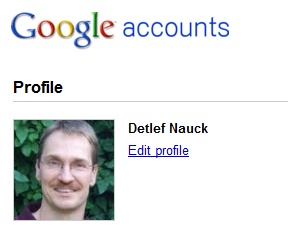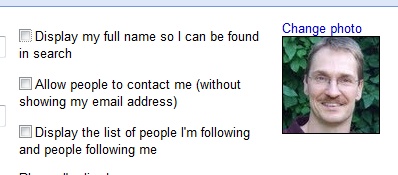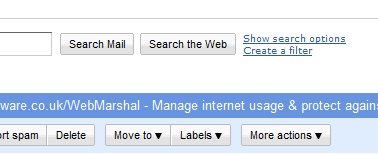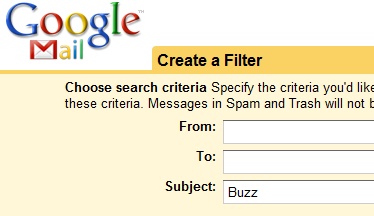Chances are you keep in touch with your friends via Facebook and you may even release the occasional tweet on Twitter. You probably use a free e-mail service offered by the likes of Yahoo, Microsoft’s Windows Live or Google. And if you are really hip (or a teenager) you use all of this on the go on your smartphone.
Now Google has announced Buzz – its competitor to Facebook and Twitter. If you already have a Google mail account, Buzz has already been activated for you. And if you have a public Google profile, you may already be on Buzz without knowing it. The Google Maps application on your smartphone has a Buzz layer added to it. Isn’t that all very convenient? E-Mail, search engine, maps, photos all linked to your social network and all available on the move – very nice.
But before you are tempted to abandon Facebook and Twitter and consolidate your virtual life with Google you may want to learn a bit more. Because with Buzz, Google has switched the data hoover into overdrive and tells the world a lot about you.
If Buzz is activated in your Google profile, you automatically follow all your regular e-mail contacts if they also have a Google account. Everyone can see who you are following. That is similar to Twitter or Facebook where everyone can see who your friends are. But your e-mail contacts have a different quality than the people you follow on Twitter or Facebook. On Twitter you are more likely to follow a mix of some friends and some folks and celebs with more or less witty tweets. Your Facebook friends are not necessarily the people you keep regular contact with. At least no one can tell. On Buzz people can see who you are regularly communicating with. If you are using Google mail to keep in touch with a secret lover or to negotiate a new job with the competitor of your employer you may want to do some hectic profile editing now.
Buzz has been designed for mobile social networking. When you post something on Buzz everyone can see it on Google Maps attached to your location. Are your kids ‘buzzing’ on their smartphones while they are out and about? If they do, you can see where they are and what they are up to, but so can everyone else.
Like Facebook, Buzz allows you to post status updates and photos and see what your friends are up to. Like Twitter everyone can see what you have to say and you can see everyone else. It’s the default settings in Buzz that are the problem.
In Facebook and Twitter the default settings protect you better. In Facebook, only your friends can see your posts and in both services you start with an empty profile without being connected to anyone. Just switching on Buzz immediately reveals a lot about you.
When you entrust your e-mails, contacts, photos, social blurbs and your location into the hands of a single service provider they know everything about your virtual life and also worryingly much about your real life. This knowledge is valuable for targeted advertising the new goldmine on the internet.
So what can you do if you want to give Buzz a go? You could create another Google account (make sure you have signed out of your current one). Maybe you want to use a nickname instead of publishing your real name and add as little personal information as possible. Does the public really need to know your real birthday and your home address?
If you want to use Buzz in your current profile that you also use for e-mail and searching, you should think about restricting its chattiness.
First, you may want to hide your contact list. Go to google.com and sign in. At the top right you’ll see Settings. Click that and select ‘Google Account Settings’.

The page will change. Next to your photo (or the default profile picture if you haven’t uploaded a photo) you see ‘Edit Profile’. Click that and you will go to your profile page.

The ‘About me’ page should be displayed, if not click the ‘About me’ tab at the top left. On the right you can see three checkboxes. Uncheck at least the third one ‘Display the list of people I’m following and people following me’. Also think about if you really want to display your full name and allow everyone to contact you and potentially uncheck the other two boxes, too. Review the rest of the information on this page and make sure that you are happy for the world to be privy to this information. Scroll to the bottom of the page and click on ‘Save changes’.

Every time somebody comments on your Buzz entries you receive an e-mail. That can be very annoying and other than at Facebook or Twitter you cannot switch it off. The only solution to prevent your inbox being drowned by all the buzzing is to set up an e-mail filter. Go to your inbox and click on ‘Create filter’ at the top next to the ‘Search the Web’ button.

Add ‘Buzz’ (without the quotes) to the Subject text field. If you already have Buzz e-mails in your inbox, you can hit the ‘Test Search’ button and the filtered e-mails will be listed for you to check.

Now click ‘Next Step’ and select the filter action. I selected ‘Delete it’, but if you want to keep the notifications and read them later you can select ‘Skip the Inbox’ and archive them. If you want to apply the filter to the e-mails already in your inbox select the check box for ‘Also apply filter to conversations below’. Now click ‘Create Filter’ and you are done.

When you no longer want to use Buzz you can easily switch it off altogether. The option is a bit hidden, though. I wonder why Google doesn’t provide a big on/off button. Anyway, go back to your inbox. Beneath it you’ll see some text with links embedded in it. Click on ‘switch off buzz’. That’s it – the buzzing has stopped. You have to click on ‘turn on buzz’ if you ever want to use it again.

If you no longer wish to share information about yourself via Google and you no longer want to have a Google Profile associated with your account you can delete your profile. Go back to edit your profile (see above) and scroll to the bottom of the page and click the link ‘Delete Profile’.







Apparently, Google has reacted to the criticism about the privacy issues in Buzz. Now, if you have no public profile and you are using Buzz for the first time you will be asked to create a limited profile. At this time you can control if the list of people you follow will be public before anything is published - see Google's blog. But if you have started using Buzz before these changes or if you already have a public profile when you start using it, make sure to review your profile and privacy settings.
ReplyDeleteGoogle has changed Buzz again. This is the third time in four days and it has been done in reaction to the criticism about privacy issues - see Google's blog. This is only for new users who create a new public profile. If Buzz was active for you before, you still should review your profile settings.
ReplyDelete